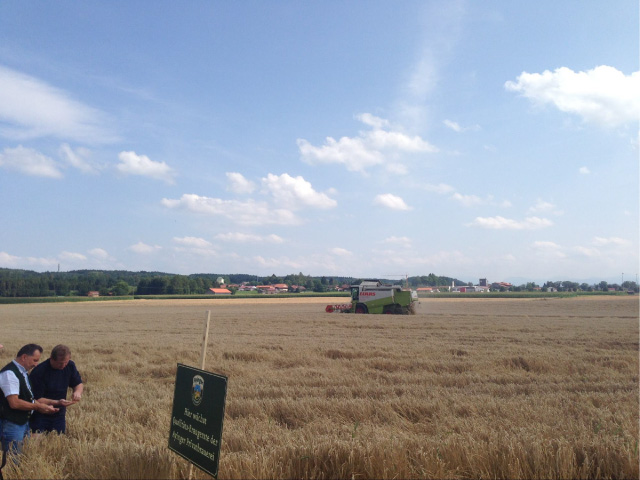Farming and malting are inseparable from the process of making beer. When we look at the history of beer through a lens of its agricultural ties, for the past 10,000 years small grains were farmed, stored, milled or malted, then baked or brewed all within walking distance. This was done at a small scale everywhere where grain grows. At Epiphany, we like to think that malting was the foundation of communities that began complex societies around collaborative efforts beyond hunting and gathering while keeping the fire burning.
In contrast, today malting is predominantly not about local but a global supply for a global customer base that relies on a well managed and executed flow of goods. Small grains selection is based on price economics comprising of the yield per acre, the highest potential extract coupled with high enzymatic activity and reliable germination capacity. Those factors have resulted in a concentration of both growing malting quality grains and malting them at a huge scale in a few regions around the world. These select regions have build an infrastructure to support itself.
THE EPIPHANY that lends its name to our malting operation centered around the realization that if there is small grains farming going on while brewing, baking and distilling is taking place, well, someone has to take on the challenge of making the connection through malting for that region. The bar is set by the highly specialized malting industry. It is up to determined and capable people to establishing the needed infrastructure to support a malting barley economy where malting is a new proposition.

The original conversations that seeded the idea for Epiphany Craft Malt happened after an NC State University emerging industries session back in 2012. In the discussion, the attending farmers and grain researchers kept repeating that “we can grow malting barley”, while the present brewers and distillers kept replying “and we want local malt but someone has to malt it first”. It was then, when Leila Wolfrum, co-founder of Epiphany, had THE EPIPHANY and turned to her husband “didn’t you go to school for malting as well?” Indeed, our founder and maltster, Sebastian Wolfrum, was uniquely positioned to explore the possibility of state-of-the-art malting here in NC. Originally from Munich, Germany, Sebastian got his training as a maltster and brewer at Ayinger Brauerei. And so it began with research and development of what is now Epiphany Craft Malt.

Across Germany, there is still a close tie between local farms, university research, regional malthouses and breweries. After coming to the US, Sebastian worked as the director of brewing operations at Natty Greene’s for 6 years during which time he got to know the state and its stakeholders. At the same time he was becoming one as a founding organizer of the NC Craft Brewers Guild. In those years, Sebastian realized that while beer was evolving, the malt supply wasn’t keeping up with the regional craft industry, especially in regards to the growing demand of brewers wanting to use local ingredients. Finding and sourcing high quality malt was difficult, and if you wanted to work with someone locally or on a specialty product, it was nearly impossible. He had first hand insight into how this system of regional collaboration across experts worked, and recognized the potential to mirror a similar direct relationship between the maltster and brewer to get farmers, breeders and researches engaged.
But before we could swing open our doors, there was a lot of work to do. We had to build a cutting-edge precision malting operation, and start the integral work of building a robust network of collaborators that include farmers, grain brokers, academic and agricultural extension agent partners, and, of course, brewers.
Stay tuned for more how craft malting evolved on our blog as we explore the farming and grains.
Until Next time,
Happy Brewing, Baking, Distilling and beyond!
“Establishing a worthwhile Southeastern malting grain economy founded on great beer is only possible with trust and familiarity of all involved from grass to glass.”
-Sebastian Wolfrum, Owner & Maltster at Epiphany Craft Malt

0 Comments
Leave A Comment